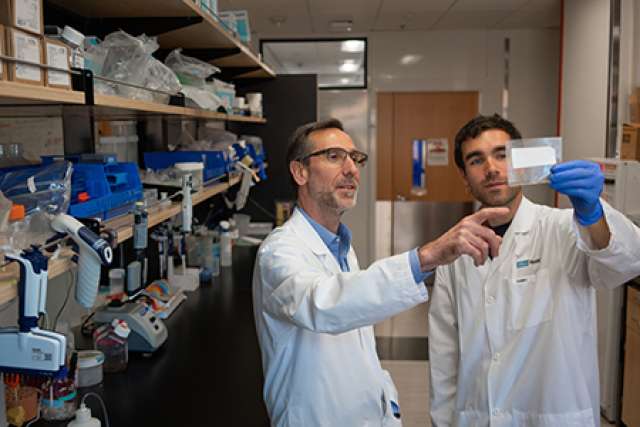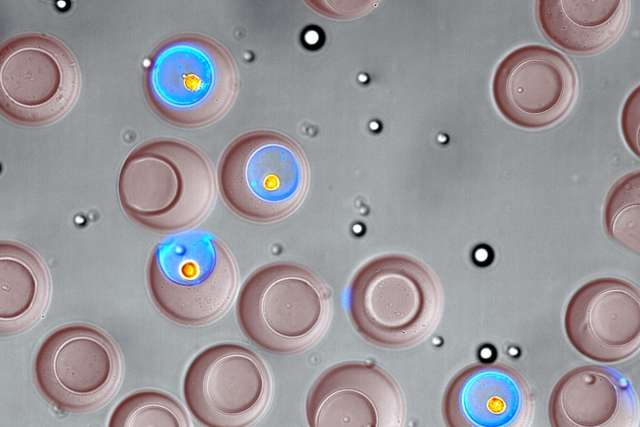FINDINGS
A new study by scientists at the UCLA Jonsson Comprehensive Cancer Center could be a significant step toward understanding how certain cases of advanced melanoma shield themselves from pembrolizumab, the FDA-approved treatment that harnesses the immune system to attack the disease.
The researchers, led by UCLA’s Dr. Antoni Ribas, studied how melanoma cancer cells react to the interferon gamma pathway, which guides cell signaling and can affect the way cancer cells react to pembrolizumab. The team then discovered and mapped out the molecules involved in the signaling pathway. The findings lay the groundwork for developing new and improved combination therapies for patients who are resistant to stand-alone immunotherapy treatments.
BACKGROUND
Pembrolizumab (marketed as Keytruda) works by signaling the patient’s immune system to recognize and attack cancer cells, with minimal side effects. It was approved in 2014 by the U.S. Food and Drug Administration to treat advanced melanoma, and approved recently to treat people with advanced non-small cell lung cancer. The medication is currently being tested as a treatment for other types of cancer.
In February, a study published by Ribas and colleagues in Cancer Discovery showed that people with cancers containing genetic mutations JAK1 or JAK2 (which are known to prevent tumors from recognizing or receiving signals from T cells to stop growing), will receive little or no benefit from pembrolizumab. This discovery enabled the scientists to determine why some people with advanced melanoma or colon cancer will not respond to the drug.
That built on 2016 research by Ribas and colleagues, published in the New England Journal of Medicine, in which they analyzed pairs of tumors both before a patient had undergone immunotherapy treatment and after relapse. The results showed that one of the tumors lost a gene called B2M, which resulted in a change in how the cancer is recognized by the immune system. The disruption caused JAK1 and JAK2 to function improperly and prevented the immune system from attacking the cancer.
METHOD
The new study was conducted over a two-year period; the scientists analyzed dozens of melanoma cell lines and several tumor samples from patients. In the laboratory, researchers also used an advanced technology called a lentivirus shRNA screen to locate which molecules were involved in the interferon receptor pathway signaling process.
IMPACT
The research allows further investigations into how the immune systems of patients with advanced cancers can resist anti–PD-1 immunotherapy treatments, the class of treatments that includes pembrolizumab.
AUTHORS
Ribas is director of the immunotherapy program at UCLA’s Jonsson Comprehensive Cancer Center. Dr. Angel Garcia-Diaz of the Jonsson Cancer Center is the study’s first author and co-authors are Dr. Daniel Shin, Dr. Robert Damoiseaux, Dr. Roger Lo, Dr. Siwen Hu-Lieskovan, Dr. Thomas Graeber and Dr. Begonya Comin-Anduix, all members of the cancer center.
JOURNAL
The study is published in Cell Reports.
FUNDING
The research was supported by Stand Up to Cancer, the Parker Institute for Cancer Immunotherapy, the Dr. Robert Vigen Memorial Fund, the Ressler Family Foundation, the Samuels Family Foundation and the Garcia-Corsini Family Fund.



